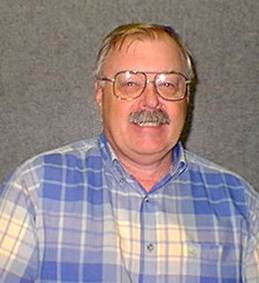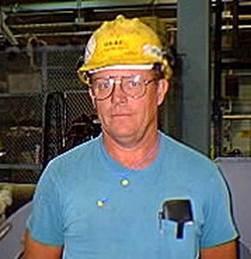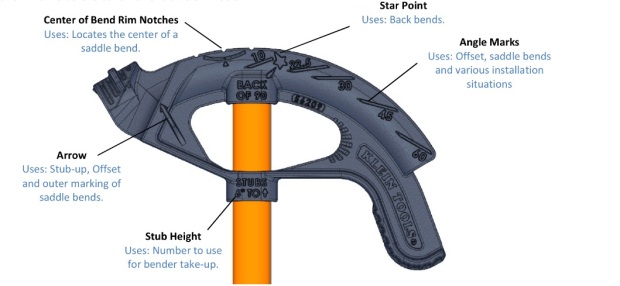We were told at the coal-fired Power Plant in North Central Oklahoma that we were going to have to stop doing the excellent job we were used to doing. We no longer had time to make everything perfect. We just had to patch things together enough so that it was fixed and leave it at that. Jasper Christensen told us that we were going to have to “Farm Fix” things and work harder because we now only had half the employees.
Two things bothered me right away….
First, “Work Harder.” What exactly does that mean? How does one work harder? When I pick up my tool bucket to go work on a job, should I put some extra bricks in it so that it is harder to carry? What then? Think about it… Shouldn’t we be working “Smarter” instead of “Harder”? We were all hard workers (if that means, spending a good 8 hour day doing your job). Any slackers were laid off 7 years earlier.
When I heard “Farm Fixing” I took offense to the reference. Jasper had mentioned using bailing wire to hold something up instead of taking the time to make our jobs look pretty. As if bailing wire was somehow synonymous with “Farm Fixing”. My grandfather was a farmer…. I’ll talk about that in a bit….
Jasper also informed us that we were no longer stuck doing only our own trade. So, an electrician should expect to help out as a mechanic or a welder as long as it wasn’t too involved. Certain welding jobs, for instance, require a certified welder. If the job was just to tack weld up a bracket somewhere, then I, as an electrician, could wheel a welding machine over there and weld it up.
After that initial meeting after we had been downsized to pint-sized, we met with our own teams. Alan Kramer was my new foreman. He encouraged us to learn the different skills from our teammates.
I asked Ed Shiever to teach me how to weld. After about an hour, I decided I wasn’t too interested in melting metal using electricity. I would leave it to the experts. I was left with a sunburned chest, as I usually wore a V-Neck Tee Shirt in the summer.
Jody Morse was a mechanic on our team, who had been a friend of mine since I was a janitor. We had been on the labor crew together. He asked me if he could do some electrical work with me. He thought it would be a useful skill to learn. I happily agreed to let him work alongside me running conduit and pulling wire around the precipitator hoppers.
It wouldn’t include working on any circuits where he might accidentally come into contact with anything live. So, I thought this was a good starting point. That was one of the first skills I learned as an electrician-in-training when I was taught by Gene Roget, a master of conduit bending.
I showed Jody how to bend the conduit and have it end up being the right length with the curves in the right place (which is a little tricky at first). Then I showed Jody where the conduit needed to go, and where the wire needed to end up. He said he wanted to do this all by himself, so I left him to it and left to do something else.
A little while later, Jody came back and said he had a slight problem. He had cut the cable just a little bit too short (Yeah. I had done that myself, see the post: “When Enough Power Plant Stuff Just Ain’t Enough“). I looked at the problem with him, and he was about six inches too short.
Jody looked the job over and decided he had two options. Pull some new longer cable, or try to make the existing cable work.He figured out that if he cut off 6 inches of the conduit, and sort of bent it out so that it was no longer exactly at 90 degrees, then it would still reach where it needed to go, only the conduit wouldn’t look so pretty because the conduit would appear a little cockeyed. We figured this would be all right because Jasper had just finished telling us that we needed to make things not so pretty anymore. Jody finished the job, and filled out the Maintenance Order indicating that the job was done.
The cable and conduit job had been requested by Ron Madron, one of the Instrument and Controls guys on our team. When he went out and looked at the conduit, let’s just say that he wasn’t too impressed. He went to Alan Kramer and complained that the conduit job was disgraceful. I don’t remember his exact words, but when I heard about it, it sounded to me like he said “It was an abomination to all things electrical”.
I had always taken pride in my work, and doing a “sloppy” job was not normal for me. I didn’t want Jody to feel bad about this because he was pretty proud of having completed the job all by himself without my help. So I went and had a one-on-one with Ron and explained the situation to him. I also told him that the next time he has problem with something I did, come directly and talk to me about it instead of our foreman. We’re all on the same team now.
I think once he realized the situation, he was more receptive. Jody and I did go back out there and fix the issue by running a new cable that was long enough, with a new piece of conduit that was installed with the best of care so that it looked pretty. — None of us informed Jasper that behind his back we were still performing our jobs with great care and precision.
The more I thought about the idea of “Farm Fixing” and “Risk Management” and how it was being applied at our plant, after about a year, I wrote a letter to the Superintendent over all the Power Plants, Jack Coffman.
Here is the letter I wrote (It was titled “Farm Fixing and Risk Management” — appropriate, don’t you think?):
Dear Jack Coffman,
I went through the Root Learning Class on Friday, September 6. After the class our table remained to discuss with Bruce Scambler the situation that exists at the power plants concerning the way we maintain our equipment. We attempted to discuss our concerns with our facilitator, however, the canyon depicted in the first visual became more and more evident the further we discussed it.
My two concerns are the terms “Farm Fixing” and “Risk Management”. These are two good processes which I believe must be employed if we are to compete in an open market. I do believe, however, that our management has misunderstood their true meaning and has turned them into catch phrases that are something totally different than they were originally intended.
I come from a family of farmers. My father and grandfather were farmers. I was concerned about our use of the term “Farm-fixed”, so I discussed the way we were using it in our company with my father and I have confirmed my understanding of the term.
My grandfather as a farmer was a Welder, a Blacksmith, a Carpenter, and an Engine Mechanic. When a piece of machinery broke down while he was out harvesting or ploughing a field, it is true that baling wire and a quick fix was needed to continue the work for the day. There is a small window of opportunity when harvesting and the equipment had to be running during this time or the farmer’s livelihood was at stake.
That evening, however, the piece that broke was reworked and re-machined until it was better than the original store bought item. Thus guaranteeing that it wouldn’t break down the following day. If the repairs took all night to make it right, they would stay up all night repairing it correctly. It was vital to their livelihood to have their machinery running as well as possible.
A Ford Tractor soon became my grandfather’s tractor as the original factory parts were replaced with more sturdy parts. It wasn’t repainted (gold-plated), because they weren’t planning on selling their equipment. The tractors and plows would last years longer than originally designed. All this was before farming became a subsidized industry.
We need to “Farm-Fix” our equipment. Our management however, focuses on the use of baling wire during an emergency and replaces the true meaning of Farm-Fixing with the meaning of “Jerry-Rigging”. Which is merely a temporary fix while farming and is NOT farm-fixing something. We have been maintaining our plant with quick fixes and have not been farm-fixing them. If so, our equipment would be more reliable, and would last longer than originally intended.
Risk Management is another area that has been misunderstood by our management. They have gone to school and have been trained in Risk Management. I don’t believe they are using their tools in the way that they were taught. They have taken the underlying idea that we may not need to make a change or repair a certain piece of equipment at this particular time and have made it the center of their idea of Risk Management. Risk Management is more than that. It is weighing the consequences of both actions against the cost and making an informed decision to determine the timing of maintenance.
Risk Management at our plant has become nothing more than speculation, or what I call “Wish Management”. The decision is often made based on the immediate cost and downtime to delay maintenance without properly identifying the possible damage that could occur and the cost of that scenario.
The phrase “It’s run that way this long, it will probably be all right” is used to justify not repairing the equipment. No real analysis is done. Then we cross our fingers and “Wish” that it will continue running forever.
I believe in the concepts of Risk Management and Farm-fixing. I think they are processes that should be used in our company to achieve and maintain “Best-In-Class”. I am concerned, however, that if we continue on the course that we are on where “Wishing” and “Jerry-rigging” are our processes, it will only be a matter of time before our workers get killed and our plants melt down around us.
Kevin Breazile
Sooner Station
— End of the letter. See? I was always trying to stir things up.
The first summer I worked at the Power Plant as a summer help, we had a couple of floor drain covers in the maintenance shop that were missing from the floor drains. Plywood had been used to cover the drains, which had been smashed down by the heavy equipment that traveled in and out of the shop. One day during lunch I wrote a Maintenance Order to have the floor drain covers replaced and placed it on Marlin McDaniel’s (the only A Foreman at the time) desk. I was only an 18 year old kid that was just learning my way around in the world and already stirring things up, but I figured this was an accident waiting to happen.
The very next day, a plant mechanic, Tom Dean stepped onto one of those floor drains while carrying a heavy ladder and seriously hurt his back. It was a life changing event for Tom that immediately changed his career. The next day, the drains had new covers. I talked about this in the post: “Power Plant Safety is Job Number One”
Approximately one year after I wrote the Farm-fixing and Risk Management letter to Jack Coffman, we had a major incident at the power plant that was directly caused by the decision not to replace a coupling when it was known to be faulty (risk management, they called it). It would have required extending an overhaul a day or two. Instead, after half of the T-G floor burned to the ground and the plant was offline for about 3 months. Millions of dollars of damage. That is a story for another post.





Jack Coffman? Come on, now where was Ben Dover?
LikeLiked by 1 person
this is some great shit … really interesting … i’ll be back and thanks for reading me. ks
LikeLike
Having a brew with Richard Gozzinya.
LikeLike
The kind of “risk management” you are describing in that letter is what caused the deep water horizon desaster (and probably a lot of similar disasters). And there seems to be a general problem that some people working as managers do not really know what they are talking about and what the workers are doing.
LikeLiked by 1 person
Good point Nannus
LikeLike
You should check the dates when it happened approx as to what happened a year before that! its was karma for what happened in 94 , about a year to the day exactly i believe. I think the other term as they progressed was component outage no more of the big lengthy overhauls as we became nimble with the component outage
LikeLiked by 1 person
Great story! I’m glad I wasn’t a part of that “management” regime.
LikeLiked by 1 person
This was a great post, highlighting an attitude by upper management that has become almost universal. I used to work in the insurance industry, and fought the same battle again and again. It took alot of guts to write that letter. Your job could have been at risk. But the letter is certainly something you can look back on with pride.
LikeLiked by 1 person
Boy does this bring back memories. There are few things more frustrating than being forced to do shoddy work. When I was in my 20s I did construction work off and on, and was often appalled by what I saw and what I had to do.
The job that broke the camel’s back took place in Boise about 35 years ago. I was working on a cement crew that had subcontracted a job to put in the sidewalks and curbs in a small, supposedly high end housing development.
The first thing I noticed that really bothered me was that the walls of the houses had no insulation — none, and this in a place where it sometimes gets down to 20 below.
The second thing, and the one that really tore it, was that the developer was too cheap to put in drainage culverts under the roads. Instead, they had us put in shallow French drains, which pretty much guaranteed that the roads, and probably curbs, would go to hell within two or three years because of freezing-expansion in the winter. In other words, the roads would look pretty long enough for the developer to sell the houses.
A few years after that, I managed to become self-employed, and have been ever since. There are a lot of lousy things about self-employment, but one of the really good ones is that I never have to do substandard work.
LikeLiked by 1 person
Great story m Thanks for sharing it.
LikeLike
Is ‘Farm Fixin’ anything like ‘Nigger-riggen’?
LikeLike
I think the proper term you are referring to is Jerry-Rigging.
LikeLike
Don’t know ‘Jerry’. I live farther south than you.
LikeLike
Reblogged this on John Barleycorn.
LikeLiked by 1 person